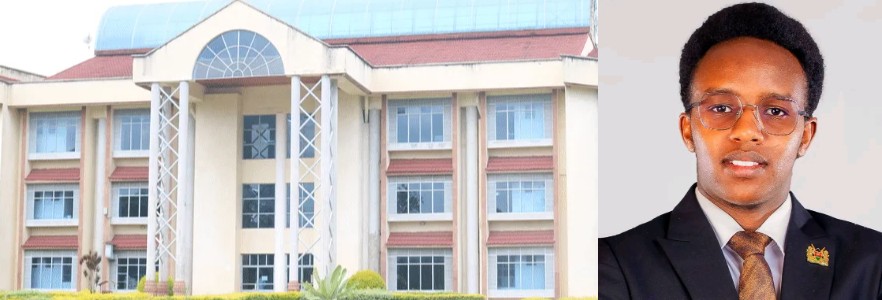By Victor Ochieng’
vochieng.90@gmail.com
I once shared a speaking platform with Mr. Dennis Abok, the erstwhile Principal of Kisumu Boys’ High School. It was a teens’ convocation, held at Kipsigis Girls’ High School and sponsored by a faith-based organisation called Teens for Christ Africa (TFCA). In that star-studded event, the top guns at TFCA asked this emeritus principal to meet us, and share his exhilarating experiences in school headship.
Mr. Abok shared with us bright-eyed insights worth writing about in this sad season where secondary schools have been hit-hard by the spate of strikes. The central plank is: Head honchos should always find ways to control and contain learners even when the chips are down and the shit has hit the fan. Mr. Abok’s way of managing tension focused on the 4 Fs: Food, fun, family and fellowship.
On food, this legendary leader knew that boys love eating. Therefore, he would strive to strike the best chord. He would go to the market, buy big bulls, and tether them in the field. He would assemble the boisterous boys, and apprise them that the bulls would be slaughtered in piecemeal, to make them meet meat. Intriguing enough, he would tease their psychology by asking them to point out the one they would want to eat first.
Somehow, Mr. Abok maintained, ensuring that food is available in plethora, work wonders. Principals reach hearts of students through their insatiable stomachs. Of course, we all know that students cannot eat in school the way they eat at home. Though, for things to be hunky-dory, the powers-that-be must ensure that they feel sated and satiated.
Some principals commit one grievous goof. They ensure that students eat well, but forget about teachers who serve as their generals on the ground. Yet, even teachers have stomachs that clamour for good food. In some schools, teachers just chant: We were eating chicken. Then started eating eggs. Now we are eating like chicken.
In addition, students love life. They are prone to fun, leisure and pleasure. On pleasure, they can go overboard, because they don’t know one of the Seven Deadly Sins advanced by Mahatma Gandhi: Pleasure without conscience. No wonder, if the school scrapes off entertainment it foments trouble. They want to watch football and movies. Music is what they want to listen to.
Principals like Mr. Abok that understand teens, do not deny students access to entertainment. Instead, they find wonderful ways of introducing edutainment: forms of entertainment that are educative. For instance, inviting theatre groups to stage live performances of KCSE set texts, makes thespians to tickle their ribs. This creates comic effect. In the whole scheme of things, they also grasp KCSE set texts.
Seat-of-the-pants sense should guide schools not to leave students to watch stupid stuff, for it has ripple effect on their mortal minds. Schools can train learners to be prone to sensible forms of entertainment like listening to phenomenal speeches and watching didactic documentaries. This will pique their verbal-linguistic intelligence and linguistic competence. It will also hone their imaginative and creative skills.
Also, talent shows and cultural festivals staged once in a blue moon can be full of fun. Schools can create fun, when students engage in eating competition, tag of wars, singing of songs, rendition of poetry and beauty pageantries. Inter-class games and sporting activities, help students to steam off; they break from the rigmarole of tight academic programmes.
Some principals also encourage teachers to stage football matches with students. That is how teachers create rapport with students. Those light moments are important in leadership. For Robin Sharma in his book titled the Leader Who Had No Title, posits that leadership is not just limited to titles, ranks and sitting in ego-boosting offices. But great leaders are HUMAN — which is the acronym of Help, Understand, Mingle, Amuse and Nurture.
Moreover, students also find fun in Physical Education (PE) and Life Skill lessons. All work and no play makes Jack a dull boy. PE is important because Psychology and physiology are close cognates. When the body is weak or sick, that dents the mind. Therefore, learners should engage in 20 minutes of aerobic forms of exercise at least thrice in a week. That is how they become fit like fiddles and sound like bells. It succours them manage stress and reduce tension.
On Life Skills, the ones that are timetabled, and the ones that are conducted by guest speakers, have puissant impact on learners. Schools that have well-thought-out mentorship and motivational programmes, manage aberrant behaviour in learners. Such informative, insightful and inspirational sessions; take care of mental health of learners. It offers psycho-social and spiritual support.
Schools should also form families. Then, teachers act as surrogate parents and care-givers. This is what Mr. Abok did in most of the schools he steered. For some learners hail from dysfunctional families, where parents are present but absent. Some of the parents suffer from TB — Too Busy. Therefore, they abdicate their parental responsibilities. They fail to instil discipline in their children. They see schools as corrective facilities where they can take their children to be chided and rehabilitated.
By and large, when schools operate as close-knit families, they become safe havens and secure heavens for learners. Students find peace and solace while holed up in school, Orphaned and Vulnerable (OVCs) find care and comfort. In schools where family values are upheld, students are taught on how to be loving, courteous, caring, clement and kind.
Lastly, Mr. Abok succeeded as a school head because he operated as a principal-cum-priest. He believed that some challenges needed divine power switched on through prayer and petition. He welded his staff together through frequent fellowships. Like the early church talked about by Dr. Luke in the Acts of the Apostles, they met many times to edify and encourage one another.
The writer is an editor, orator and author.






